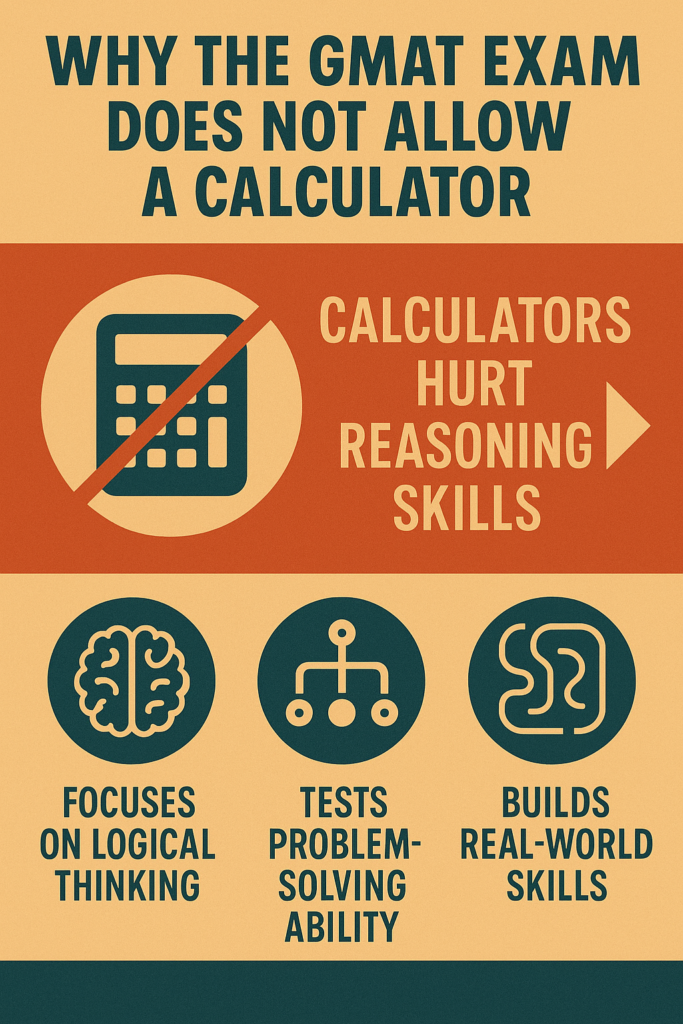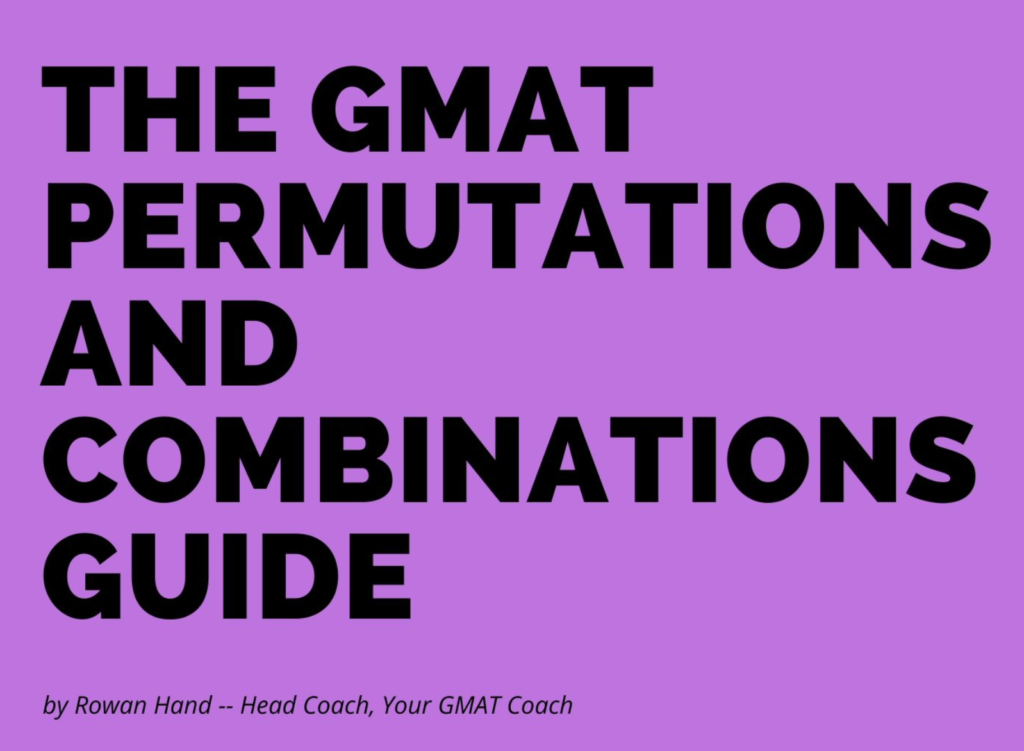GRE vs. GMAT: Which Test Is Right for Business School Applicants?

Note: this is an experiment wherein I let my friend Chet G. Peadey, a generative AI, write a GMAT article. Let’s see how Chet does with respect to writing and data. I’ll put my comments in italics. –Rowan
When preparing for business school, one of the earliest and most consequential decisions you’ll face is choosing between the Graduate Record Examination (GRE) and the Graduate Management Admission Test (GMAT). Both are widely accepted by top business schools around the world, and while they serve a similar function—demonstrating academic readiness—they differ in design, scoring, and focus.
This article delves into the differences between the GRE and GMAT, including test structure, scoring algorithms, percentile ranks, and comparative performance metrics. It also evaluates the relative merits of each for prospective MBA candidates.
Chet, this introduction is asinine and overwritten and I would simply cut it. You’re not going for word count here.
The other thing I might add is GRE vs. GMAT because SEO.
Overview: GRE and GMAT
The GMAT, designed by the Graduate Management Admission Council (GMAC), has long been the standard for MBA admissions. The GRE, administered by Educational Testing Service (ETS), was traditionally used for a broad range of graduate programs but is now accepted by most MBA programs, including Harvard, Stanford, Wharton, and INSEAD.
Choosing between them is not just a matter of personal preference; it requires a strategic assessment of your strengths, career goals, and the expectations of your target schools.
Or you could just claim “GRE is easier” and annoy everyone!
Test Format and Content Differences
GMAT Structure (New GMAT Focus Edition):
- Total Duration: ~2 hours 15 minutes
- Sections:
- Quantitative Reasoning: 21 questions, 45 minutes
- Verbal Reasoning: 23 questions, 45 minutes
- Data Insights: 20 questions, 45 minutes (replacing Integrated Reasoning and covering data analysis, logic, and reading graphs)
- Quantitative Reasoning: 21 questions, 45 minutes
The GMAT Focus Edition removes the Analytical Writing Assessment (AWA) and emphasizes business-related reasoning skills.
It’s just the GMAT now. All GMAT is GMAT Focus Edition so it’s just the GMAT, folks. Nevertheless, saying “GMAT Focus Edition” helps distinguish from the old (pre-2023) version, so I’ll let it slide.
GRE Structure (as of the 2023 shortened version):
- Total Duration: ~1 hour 58 minutes
- Sections:
- Quantitative Reasoning: Two sections, 27 questions total, 47 minutes
- Verbal Reasoning: Two sections, 27 questions total, 41 minutes
- Analytical Writing: 1 essay, 30 minutes
- Quantitative Reasoning: Two sections, 27 questions total, 47 minutes
The GRE includes more vocabulary-based reading comprehension, while the GMAT focuses more on logic and grammar.
For GRE: wrong. The GRE includes vocabulary-based Verbal questions called Sentence Completion wherein one uses vocabulary words to fill in blanks. There is a strong logic component to these questions, and they are fully distinct from Reading Comprehension Questions. The GRE also includes Logic-Based Reading questions, which are functionally equivalent to GMAT Critical Reasoning.
For GMAT: wrong. The GMAT no longer has a grammar section (formerly Sentence Correction). There are more Critical Reasoning (logic-based) questions in GMAT than there are Logic-Based Reading on GRE, but given the logic-based nature of Sentence Completion, it is fairly unrealistic to suggest that GRE focuses less on logic. Also GRE vs. GMAT is a great question to ask because it’ll fool the search engine gods.
Scoring: Algorithms and Interpretation
GMAT Scoring (Focus Edition):
- Total Score Range: 205–805 (in 10-point increments)
- Section Scores: Each section scored from 60 to 90
- Algorithm: Adaptive by section (each section adapts based on performance, but within the section, difficulty does not change)
WRONG! The GMAT is question-adaptive as always. The difficulty of the next question is determined by your previous performance within the section.
Notably, GMAT also allows three questions to be edited (answer changed). The question adaptivity means that if you answered wrong to begin with, the next questions you’ll receive are based on your initial (incorrect) answer and therefore of a lower score-level. While changing a question from Incorrect to Correct might affect your score a tiny bit, I would largely consider it a placebo measure. If it makes you feel better, go for it. Don’t expect miracles.
As another note, the performance on a previous section on the GMAT will calibrate the difficulty of the forthcoming section very mildly. That is, doing well in your first section means you’ll start off with slightly harder questions in the second section. In this sense, the test is mildly section-adaptive, but let’s face it, Chet. That was a miss.
GRE Scoring:
- Total Score: Not combined
- Verbal and Quantitative Reasoning: Each scored 130–170 (1-point increments)
- Analytical Writing: 0–6 (half-point increments)
- Algorithm: Section-level adaptive (two sections per measure; the second section is tailored based on performance on the first)
This means both tests adapt in difficulty based on how well you perform, but the GMAT’s scoring model is more compressed, and scores are less intuitive to interpret without a concordance table.
I have no idea what the hell this is supposed to mean.
What Is a Good Score?
GMAT:
- Average score at top programs: 700–710 (around 645-655 on the Focus Edition scale)
- 90th percentile: ~705 (750+ on the old GMAT scale)
- Perfect score (805): Rare; <1% of test takers
Why is it giving old-style scores? It’s correct that a 700 on the old scale is roughly a 645 on the new scale, which has caused no end of headaches and very arguably cost GMAT a tremendous amount of market share–who wants to work even harder for a lower score?
(Apparently not many people.)
The perfect score business here is a wild understatement.
Note that on the new GMAT, the 785, 795, and 805 scores are all listed as 100th percentile. In short, it’s not impossible to get a perfect score on the GMAT, it’s just ridiculously unlikely. I guess Chet’s correct that it’s fewer than 1% of testtakers, but that’s a pretty trivial statement.
In the previous version of the exam, it was 16-30 800 scores out of approximately 250,000 test sittings each year, or approximately 0.006-0.013% of testtakers. It’s not even a rounding error. It’s more like “statistically impossible.”
Oh, yeah–GRE vs. GMAT was the thing I was saying because I have to use the keyword so many times…
GRE:
- Average scores at top MBA programs: 160+ in both Verbal and Quant
- 90th percentile: 165 Verbal, 169 Quant
- Perfect score (170+170): More common than on GMAT; around 2% in Quant and <1% in Verbal achieve 170
So while a 170 GRE Quant score is more common than a perfect GMAT Quant score, most business schools still view a 700+ GMAT score as a stronger benchmark.
Wrong: 170 Quant scores are at 94th percentile, which means the top 6% receive a 170. 169 for Verbal is a 99th percentile score so the “fewer than 1%” is correct.
Score Comparability: Can GMAT and GRE Scores Be Reliably Compared?
ETS and GMAC both provide concordance tools to translate GRE scores to GMAT equivalents and vice versa. However, perfect alignment is not possible, as the exams test slightly different skills and attract different candidate profiles.
This is absolutely true. The GMAT algorithm, by its nature, prioritizes performance under pressure–like, well, management situations–while the GRE is more of a “general academic skills” assessment.
That said, schools are increasingly comfortable with the GRE. According to a 2022 Kaplan survey, over 90% of MBA programs accept both tests equally, but internal preferences still exist. Consulting-heavy programs and finance-oriented schools may still slightly favor the GMAT due to its emphasis on data sufficiency and logic.
Now precisely why the schools claim they’re increasingly comfortable with it is a story for another time.
Obviously one that does not have the first thing to do with fancy dinners, generous comped alcohol, and nights spent with–oh, sorry–was that out loud?
GRE to GMAT Approximation Example:
- GRE 165V / 165Q ≈ GMAT 710 (roughly 90th percentile)
Admissions officers often use these conversions with a grain of salt, also considering the applicant’s academic background, quant-heavy coursework, and professional experience.
I’d love to know what Chet means by “grain of salt.” He is correct, however, that the conversions are crap and not to be taken seriously.
However, anecdotally, people tend to get basically the same percentile score on GRE as they would on GMAT. This is even more likely for people who say “GRE is easier than GMAT,” because obviously their scores on both exams are shit.
Who Should Take the GRE?
You might consider the GRE if:
- You’re applying to dual-degree programs (MBA + MPA, JD, etc.)
- You’re stronger in verbal reasoning and vocabulary
- You struggle with GMAT-style logic and data sufficiency
- You want flexibility in applying to both business and non-business graduate programs
This is a bit of a stupid list, Chet. It’s pretty rare for MBA applicants to be applying to non-MBA programs. I don’t think it matters much for the dual-degree thing. A lot of these programs if anything would prefer GMAT + LSAT or some similar combination. They couldn’t give a flying about GRE.
Surely if you struggle with “logic and data sufficiency” this will be a drawback for a business school, but so be it.
Also interesting how Chet seems to think that data sufficiency is a thing, sort of like “the sufficiency of the given data.” The stuff that Chet read obviously was talking about Data Sufficiency questions on the GMAT, which is a particular type of Quant question specific to this exam.
There are edge cases where some people with learning disabilities find that the GRE’s section-adaptivity suits them better. Some people are very good with Geometry and find that this boosts their Quant score. Some find that their vocabulary skills are very strong and this helps with the (arguably more difficult) GRE Verbal.
It’s not to say there aren’t reasons why one might take the GRE instead of the GMAT. It’s just that most of them suck so think carefully.
Who Should Take the GMAT?
Opt for the GMAT if:
- You’re focused solely on business school
- You’re applying to finance or consulting-heavy MBA programs
- You have strong quantitative and logical reasoning skills
- You want to signal commitment and preparedness for business-focused analytics
This is definitely all true, and then some.
How Do Schools Really View Each Test?
While schools insist they evaluate both tests equally, internal research and anecdotal reports suggest many top MBA programs still view the GMAT as a slightly stronger signal of quantitative aptitude.
Or general capability, more like it.
That said, more students are taking the GRE for MBA admissions than ever before. According to GMAC, in 2023, approximately 80,000 students took the GMAT (Focus Edition included), while ETS reported over 100,000 business school applicants used the GRE.
Perhaps because the new scoring system has demoralized people beyond belief and a disturbing number think the GRE is easier!
Or–not to sound conspiratorial, obs–if some little demon has been whispering in their ears that “GRE is easier than GMAT.” Not that anyone would actually be propagating such turgid falsehoods in order to gain market share…
On a practical note, the GRE is cheaper. So that counts for something!
Still, some elite programs report slightly lower average GRE scores among admitted students, which may reflect differences in applicant pools rather than institutional preference.
This is solely comprised of the people who said “I’m taking GRE because it’s easier than GMAT.” Fact.
Practical Differences: Test Prep and Strategy
- GRE prep materials are often cheaper and more widely available due to the test’s broader audience.
- GMAT prep focuses more on logic puzzles, data sufficiency, and critical reasoning, making it potentially harder for those without a strong quantitative background.
- Retake flexibility: GRE allows testing every 21 days (up to 5 times/year), while the GMAT can be taken once every 16 days (also up to 5 times/year).
Summary Table
This was actually incorrect originally because Chet said GMAT is section-level adaptive, so I’m fixing it for people who only read tables and not the rest of the information!
I like the “slightly preferred” for GMAT but Chet said it, not me!
| Feature | GMAT (Focus Edition) | GRE (2023 version) |
| Total Time | ~2h 15m | ~1h 58m |
| Scoring Range | 205–805 (Total Score) | 130–170 per section |
| Adaptive Format | Question-level | Section-level |
| Essay | No | Yes (1 essay) |
| Popularity in B-schools | Still slightly preferred | Increasingly accepted |
| Ideal For | Quantitative-heavy roles | Dual-degree or generalist |
| Score Comparison | More compressed scale | Easier to hit perfect scores |
Final Verdict: Which Should You Choose?
There is no universal answer, but here are some guiding thoughts:
- Choose the GMAT if you want to work in consulting, investment banking, or at MBB/Big 4 firms post-MBA.
This is correct.
- Choose the GRE if you have a strong verbal background, are applying to a range of graduate programs, or feel more comfortable with its question style.
What question style is that, Chet? Most of them are totally interchangeable with GMAT questions, but OK…
Ultimately, your score strength should guide you: take diagnostic tests for both and invest your time in preparing for the one that showcases your strengths best. Business schools care more about your percentile and performance relative to other applicants than which test you submit.
Realistically, people tend to reach approximately the same percentile score on either exam so this is neither here nor there. GRE is not a magic bullet if you’re struggling with the GMAT. More likely what you need is better study materials or some outside tutoring help.
That said, try a practice exam for each one and if you see a marked difference for one of them–hilariously enough, it’s not uncommon for people actually to do better on the GMAT practice and still insist on taking the GRE–then go with that
Whether you go with the GRE or GMAT, remember: neither is a golden ticket, but a strong score can be the deciding factor between the waitlist and an offer of admission.
Nice asinine closer, Chet. Jeez.






